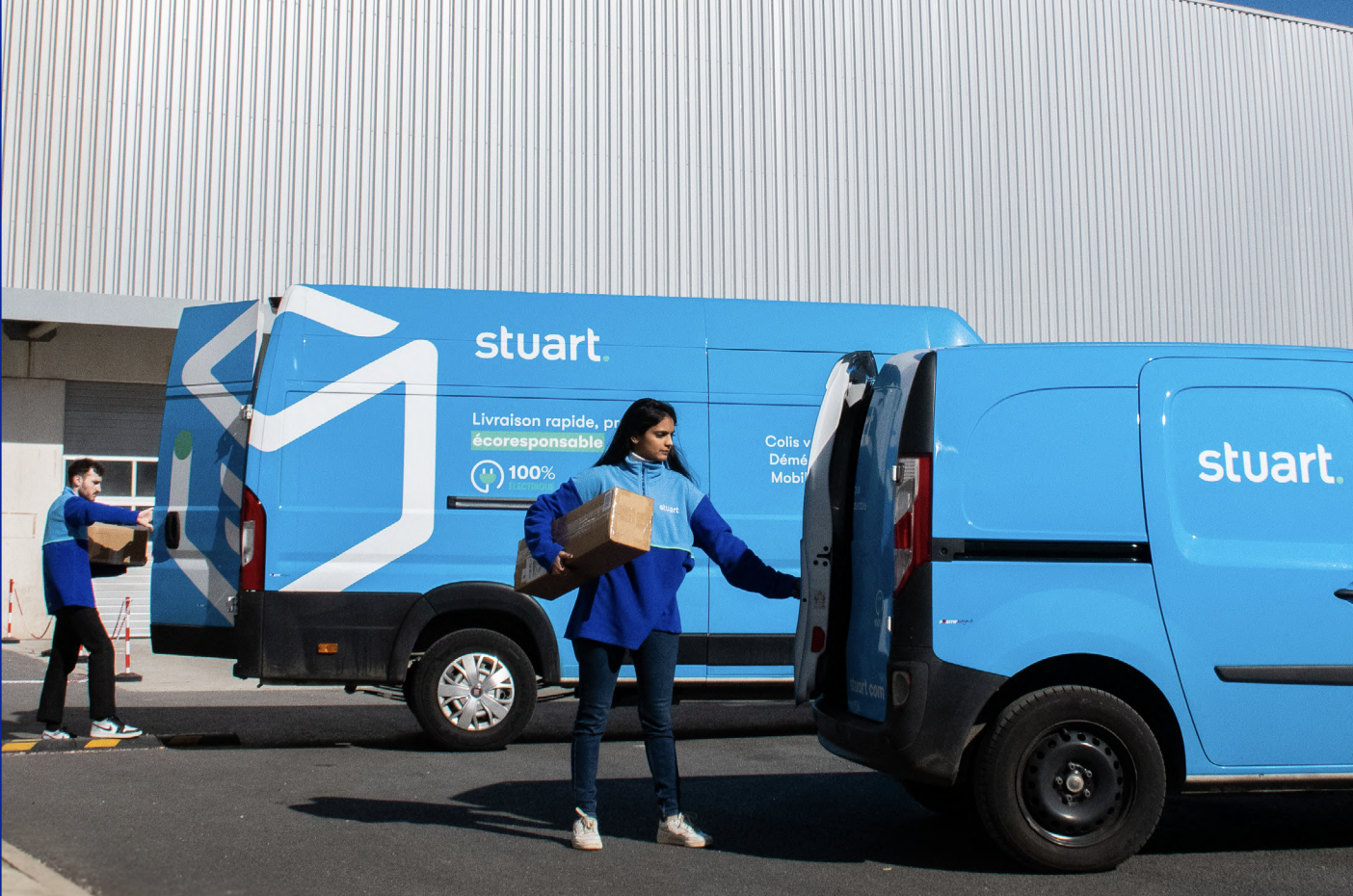Bitcoin is not the only blockchain that will have an impact on retailers in 2018. Emma Herrod looks at where blockchain is being put to use in the retail industry.
Bitcoin, the cryptocurrency that hit the headlines as its value soared throughout 2017, has brought blockchain, its underlying network technology, into the public’s view. Blockchain however is more than a currency and its value to retailers is greater than Bitcoin, Ripple or Litecoin. In the same way that social media enables a group of friends to view, share and comment on photographs in a bi-directional manner, blockchain enables retailers and their trading partners to share data online on a secured network in real time in a trusted manner to solve a variety of different business issues.
“Blockchain technology is a really important next stage for the internet,” says Jessi Baker, CEO, Provenance. She explains that although the internet is fantastic as a communications tool enabling everyone to share data across the world it falls down when that data has to be trusted. “Third parties help to broker information but while it’s good at peer-to-peer communications it’s not very good at peer-to-peer trust,” she adds.
Blockchains are the solution to this trust problem and enable a trust network that sits with the internet as a way to send data in a way that can be trusted, be that information about a product’s manufacture, movement through the supply chain, loyalty points collected by a consumer or a brand’s promotional price changes on a decentralised marketplace. The data held in a blockchain cannot be tampered with or altered so is secure and can be trusted by anyone with visibility of the data. It’s also visible in real time to anyone authorised to see it, so in the case of a supply chain network, once a food producer, for example, has added a packet of data to say that tomatoes are being picked, the logistics carrier knows with surety to arrange collection and the end retailer will know that they are on their way. By fully tracking the tomatoes all the way from producer to supermarket, the retailer can be assured that the tomatoes have been kept at the correct temperature – so knows the remaining shelf life – and the end consumer can see the provenance of the goods they are buying and be confident that the food is safe to eat.
Smart contracts can also be included in the blockchain with elements automated so that if something changes within pre-agreed parameters a particular action can be carried out automatically. For example, if the tomatoes only have 2 days of shelf life left when they arrive at the supermarket, the price paid to the supplier drops accordingly. “This type of network with smart contracts that are governing the different processes ensure there is a fair exchange of goods for value. It keeps everyone accountable to each other, which is the whole concept of blockchain, and the data that is in the network is secure,” says Paul Chang, Global Blockchain Industry Lead, Distribution & Industrial Markets, IBM.
Blockchain can prove that something has been grown to organic regulations, has been traded fairly or isn’t a fake. Consumers can trust the product and the claims that the producer is making while retailers can de-risk themselves by knowing that those claims are true. “Blockchain is going to substantiate the key preferences of the consumer’s choice whether that’s related to quality, safety or provenance,” says Baker. Blockchain networks can be decentralised into global systems with APIs feeding copies of the secure, trusted packets of data relating to the origin and state of food to and from the back-end systems of everyone in the specific supply chain be they the supplier, grower, processor, distributor or retailer. This can enable food providers and other members of the ecosystem to use a blockchain network to trace contaminated product to its source in a short amount of time to ensure safe removal from shop shelves and stem the spread of illnesses – remember the horse meat scandal, anyone?
It is this transparency and surety in the supply chain and the way that it can strengthen consumer confidence in the global food system that has brought together IBM with a number of leading food brands and supermarkets. Dole, Driscoll’s, Golden State Foods, Kroger, McCormick and Company, McLane Company, Nestlé, Tyson Foods, Unilever, Walmart and others are working with IBM and its blockchain platform to champion the technology as an enabler for the food sector. Together they aim to identify areas where blockchain can positively impact global food traceability. “Multiple retailers and multiple suppliers could participate in the same network but their data is secure to their own supply chain,” says Chang. In China, Walmart, JD.com, IBM and Tsinghua University National Engineering Laboratory for E-Commerce Technologies are working together in a Blockchain Food Safety Alliance that will see it create a standards-based method of collecting data about the origin, safety and authenticity of food, using blockchain technology to provide real-time traceability from farm to the consumer.
Blockchain technology can go even further than simply putting data in the hands of consumers. US outdoor retailer LL Bean is exploring how information on performance and use over time can be collected from clothing once it has been sold. The retailer is utilising technology from Loomia which collects data from the clothing and with the person’s permission shares it back securely with the brand. It is hoped that the solution will provide valuable insight on the use rate of products returned under LL Bean’s 100% satisfaction guarantee. The supply chain is just one area in which blockchain can be used. As Chang comments: “The most interesting opportunity [for retailers] is the ability to automate certain business processes with their trading partners which are quite manual today. There are significant amounts of inefficiencies that exist between parties. The big back-end systems and ERP systems have done a great job of automating business processes between functions within an enterprise but the question is are there better ways to automate business processes across enterprises where 7 different parties are involved? Instead of everyone passing pieces of paper or electronic files back and forth between each other is there something they can do in a more streamlined way in a centralised network?”
REDUCING THE LIABILITY
One such way is loyalty schemes since blockchain can be associated with tokens or coins which, cryptocurrencies aside, can be issued or redeemed when an action has been carried out by someone in the chain. Loyalty points, for example, can become tokens, which carry a certain acquisition and redemption value and these can be exchanged across multiple retailers or brands.
This reduces the issue of liability which companies carry on their balance sheet once loyalty points have been issued and not redeemed, explains Gabriele Giancola, CEO and Co-Founder of loyalty network qiibee. The underlying blockchain provides the surety of the points-to-redemption journey as well as security of any shared CRM data so that multiple brands and retailers can join one scheme so that loyalty earned with one brand can be redeemed with any of the other participants. Giancola explains that retailers can decide on their own level of loyalty reward; £1 spent with retailer A could be worth 1 token – or qiibeeCoin as the loyalty tokens are called– while £1 spent with retailer B could be worth two qiibeeCoins.
Loyalty rewards can also be earned by consumers sharing data, user-generated content or engaging in other ways with a brand. Each brand then decides on what a qiibeeCoin is worth when it’s redeemed at their establishment. “Unredeemed loyalty points are counted as liability on a retailer’s balance sheet,” says Giancola, explaining how the whole loyalty market is fragmented. “With blockchain and token technology we are trying to connect the whole market, give brands and retailers one foundation where they can easily tokenise their loyalty programme and give consumers the ability to earn loyalty tokens and exchange them across the market.
“Blockchain technology is a really important next stage for the internet since it enables peer-to-peer trust”
A blockchain loyalty scheme therefore means that hotel points can be redeemed in a coffee shop or airline miles become discounted petrol for a holiday hire car, for example. Qiibee is already running a loyalty scheme in Switzerland with over 100,000 members and 900 brands. It will be moving to a blockchain model during Q2 2018 before rolling out further later on this year. The decentralisation of a system made possible by blockchain also means that middlemen can be cut out of an ecosystem. INS, for example, plans to launch a platform later this year enabling grocery brands and food suppliers to sell direct to consumers. Smart contracts will automate promotions triggered by the brands so that they can engage directly with shoppers.
INS has developed the network and tools which allow brands to communicate directly with shoppers and also facilitates warehousing and final mile delivery of shoppers’ baskets. It isn’t acting as a retailer in the traditional sense. “INS is playing a limited role in the system. We are building a decentralised retailer with manufacturers on one side giving them the power to price their products and run the promotional campaigns in the way that they want,” says Peter Fedchenkov, CEO and Co-Founder INS. “We do not want to be an intermediary in between,” he says. Fedchenkov adds: “We are utilising all the exciting new technologies: blockchain for fulfilment and major grocery supply chain processing, smart contracts for marketing and our own cryptocurrency INS as a means of reward for consumers.”
Blockchain provides security and authenticity for everyone across the network, companies and consumers alike. Consumers want to trust the organisations that they deal with, they want their voice to be heard and to be connected with businesses. Blockchain enables trust to be built through the surety that data is held securely and the transparency of the underlying blockchain network. Everything remains authentic and up-to-date. Business processes can be run with greater efficiency, leading to increased visibility, higher security, lower levels of fraud and ultimately lower costs.
Bitcoin may be the at the top of the market – or crashed depending on when you are reading this – but blockchain looks set to be the real disrupter taking information transparency to a different level in years to come.





